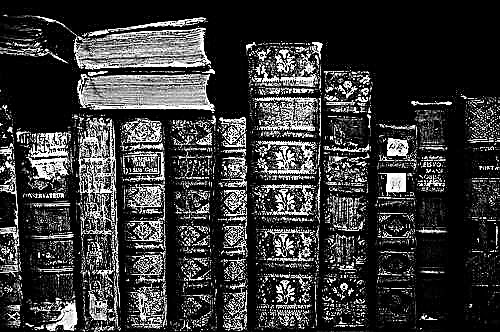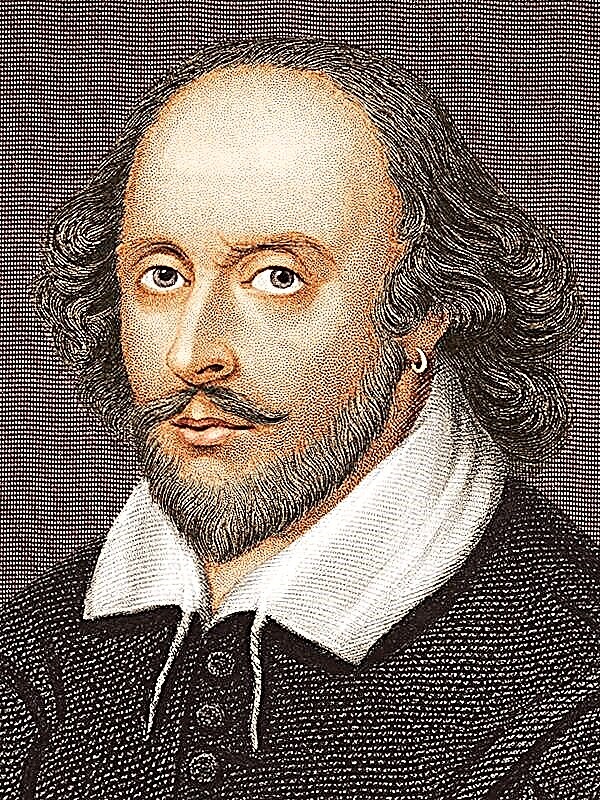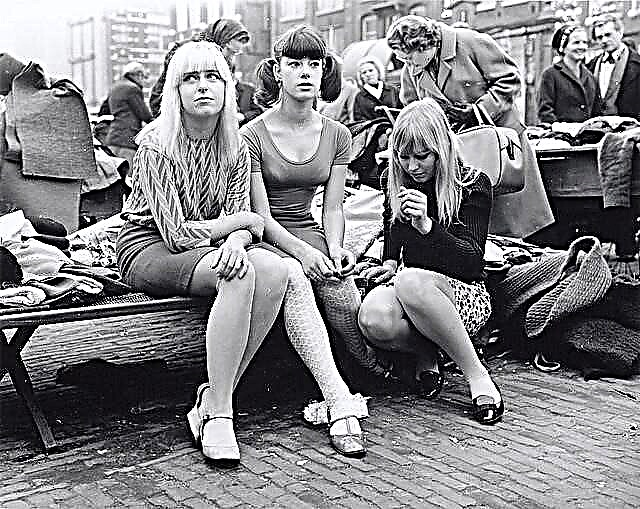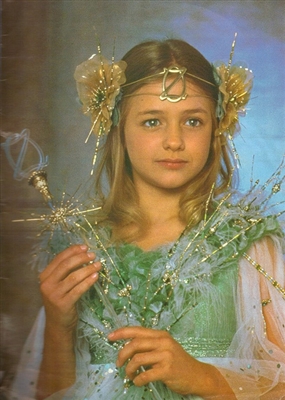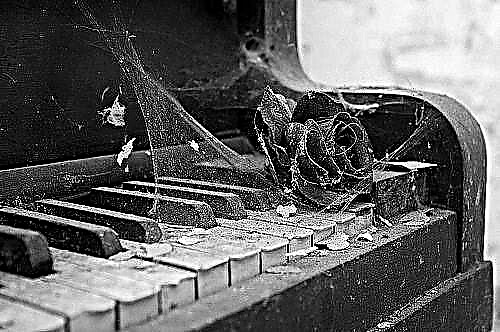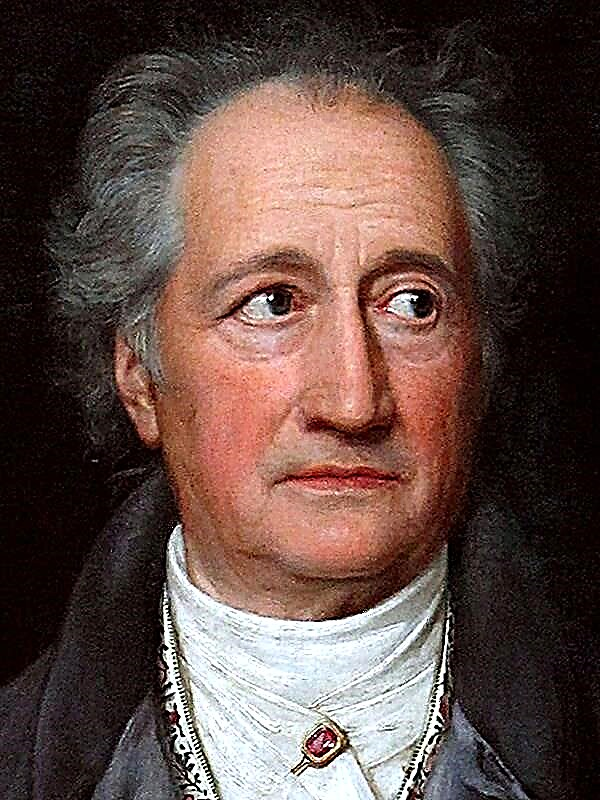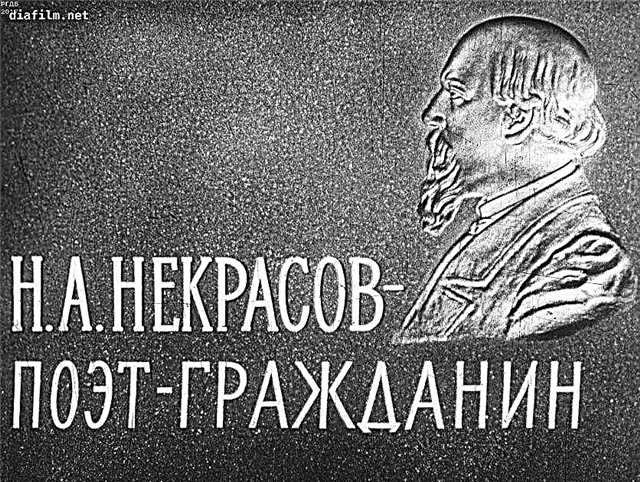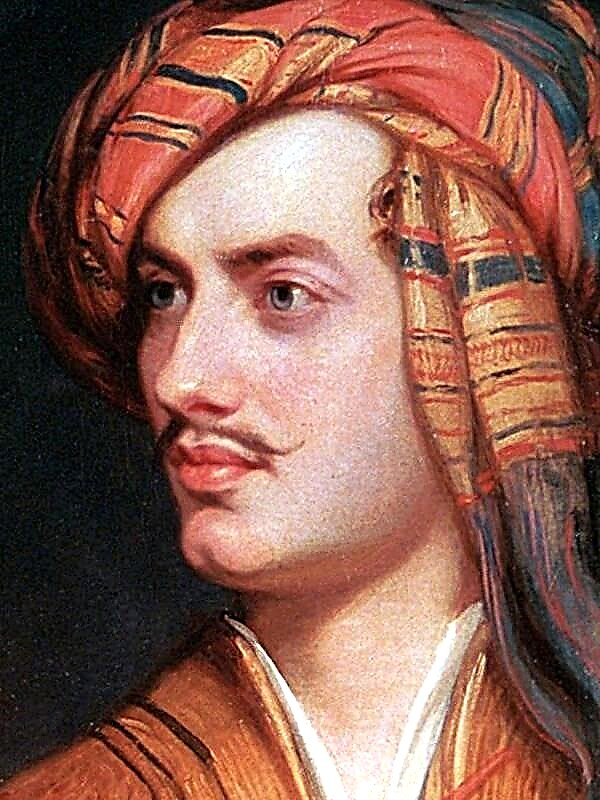"The Examiner" - the immortal comedy of Nikolai Vasilyevich Gogol. From the moment of writing, they didn’t stop reading and putting it on the stage, because the problems that the author revealed in the work will never lose their relevance and will find a response in the hearts of viewers and readers at all times.
History of creation
Work on the work began in 1835. According to legend, wanting to write a comedy, but not finding a story worthy of this genre, Gogol turned to Alexander Sergeyevich Pushkin for help in the hope that he would tell a suitable plot. And so it happened, Pushkin shared a “joke” that happened either with himself or with a familiar official: the local authorities took the person who arrived in a certain city on business to be the auditor, who arrived with a secret order to trace, investigate, and report. Admiring the talent of the writer, Pushkin was sure that Gogol would cope with the task even better than he did, he was very looking forward to the comedy and strongly supported Nikolai Vasilyevich, especially when he thought about quitting the work he had begun.
For the first time, the comedy was read by the author himself at an evening with Vasily Andreyevich Zhukovsky in the presence of several acquaintances and friends (including Pushkin). In the same year, the “Examiner” was put on the stage of the Alexandrinsky Theater. The play outraged and alerted with its "unreliability", it could be banned. Only thanks to the petition and patronage of Zhukovsky it was decided to leave the work alone.
At the same time, Gogol himself was dissatisfied with the first production. He decided that neither the actors nor the public perceived The Examiner correctly. This was followed by several explanatory articles by the writer, giving important instructions to those who really want to understand the essence of comedy, correctly understand the characters, and play them on stage.
Work on the “Examiner” continued until 1842: after making numerous edits, it acquired the form in which it came to us.
Genre and direction
The Inspector General is a comedy where the subject of the story is the life of Russian officials. This is a satire on the morals and orders instituted among people belonging to this circle. The author skillfully uses the elements of the comic in his work, supplying them with both plot twists and turns and the character system. He brutally ridicules the current state of society, either openly ironic about events illustrating reality, or veiledly laughing at them.
Gogol worked in the direction of realism, the main principle of which was to show "a typical hero in typical circumstances." On the one hand, this made it easier for the writer to choose the theme of the work: it was enough to think about what issues were of vital importance for society at the moment. On the other hand, this posed a difficult task for him to describe reality in such a way that the reader recognized it and himself in it, believed the author’s word and, plunged into an atmosphere of disharmony of reality, realized the need for change.
About what?
The action takes place in a county town, which naturally has no name, thereby symbolizing any city, and hence Russia as a whole. Anton Antonovich Skvoznik-Dmukhanovsky - the city manager - receives a letter stating about the auditor who can come to the city incognito at any time with a check. The news literally puts on the ears of all residents who have anything to do with bureaucratic service. Without thinking twice, the frightened townspeople themselves find a contender for the role of an important official from St. Petersburg and try in every possible way to seduce him, to please a high-ranking person so that he will condescendingly regard their sins. The comic nature of the situation is added by the fact that Ivan Aleksandrovich Khlestakov, who made such an impression on others, does not realize until the last minute why everyone behaves with him so courteously, and only at the very end begins to suspect that he was mistaken for some other person, visibility, an important person.
A love conflict, also beaten in a farcical manner and built on the fact that the young women participating in it, pursuing each of their own benefits, are trying to prevent each other from achieving it, is woven into the outline of the general narrative, and the instigator at the same time cannot choose one of two I will give.
The main characters and their characteristics
Ivan Alexandrovich Khlestakov
This is a petty official from St. Petersburg, returning home to his parents and mired in debt. “It’s more difficult for everyone to play the role that the frightened city has taken for the auditor,” Gogol writes about Khlestakov in one of the articles in the appendix to the play. An empty and insignificant man by nature, Khlestakov circles around the finger a whole city of rogues and scammers. The main assistant to him in this is universal fear, which engulfed officials mired in official "sins". They themselves create an incredible image of the omnipotent auditor from St. Petersburg - a formidable person, deciding the fate of others, the first of the first in the whole country, as well as the metropolitan little thing, a star of any circle. But such a legend must be able to support. Khlestakov brilliantly copes with this task, turning every passage thrown in his direction to an exciting story, so impudently ridiculous that it is hard to believe that the cunning city N could not figure out his deception. The secret of the “examiner” is that his lies are pure and naive to the extreme. The hero is incredibly sincere in his lies, he practically believes in what he tells. This is probably the first time that such an all-consuming attention has been paid to him. They really listen to him, listen to his every word, which leads Ivan to complete delight. He feels that this is the moment of his triumph: whatever he says now, everything will be received with admiration. His fantasy is flying. He does not realize what is really happening here. Stupidity and bragging do not allow him to objectively assess the real state of affairs and realize that for a long time these mutual delights cannot last. He is ready to linger in the city, taking advantage of the imaginary benevolence and generosity of the townspeople, not realizing that the fraud will soon be revealed, and then the fury of the officials circled around the finger will have no limit.
Being a loving young man, Khlestakov drags himself right behind two attractive young ladies, not knowing who to choose, whether the mayor’s daughter or his wife, and then rushes before one, then before the other on his knees, which conquers the hearts of both.
In the end, gradually beginning to suspect that all those present took him for someone else, Khlestakov, surprised at such an event, but not losing courage, wrote to his friend the writer Tryapichkin what happened to him and offered to make fun of his new acquaintances in a suitable article. He joyfully paints the vices of those who graciously accepted him, those whom he managed to decently decoy (taking exclusively on loan), those to whom he gloriously turned his head with his stories.
Khlestakov is a “lying, personified deception” and at the same time this empty, insignificant character “encompasses a collection of many of those qualities that are not found by insignificant people,” which is why this role of all is more difficult. You can find another description of the character and image of Khlestakov in the composition format. here.
Anton Antonovich Skvoznik-Dmukhanovsky, mayor
“Dodger of the first category” (Belinsky)
Anton Antonovich is a clever man and able to manage business. He could have been a good city man if he had not cared primarily about his pocket. Cleverly settling in his place, he carefully looks at every opportunity to grab something somewhere and never misses his chance. In the city he is considered a fraudster and a bad manager, but it becomes clear to the reader that he earned such fame not because he was angry or ruthless by nature (he is not at all like that), but because he placed his interests much higher than strangers. Moreover, if you find the right approach to it, then you can enlist his support.
The mayor is not mistaken about himself and does not hide in a private conversation that he himself knows everything about his sins. He considers himself a devout man, for he goes to church every Sunday. It can be assumed that some remorse is not alien to him, but he still puts his weaknesses above him. At the same time, he is sensitive to his wife and daughter; he cannot be reproached with indifference.
At the arrival of the inspector of the city mayor, the surprise rather than the check itself is more frightening. He suspects that if you properly prepare the city and the right people to meet an important guest, and also take the official from St. Petersburg into circulation, you can successfully furnish a businessman and even win something for yourself here. Feeling that Khlestakov lends himself to influence and comes in a benevolent mood, Anton Antonovich calms down, and, of course, there is no limit to his joy, pride and flight of his imagination when it becomes possible to become related with such a person. The mayor is dreaming of a prominent position in St. Petersburg, of a successful party for his daughter, the situation is under his control and turns out perfectly, when it suddenly turns out that Khlestakov is just a dummy, and the real auditor has already appeared on the threshold. It is for him that this blow becomes the hardest: he loses more than others, and he will get an unbelievable stricter. The composition where the character and image of the mayor in the “Examiner” is described, you can find here.
Anna Andreevna and Maria Antonovna
The main female characters in comedy. These ladies are the wife and daughter of a city official. They are extremely curious, like all bored young ladies, hunters to all the city gossip, as well as big coquets, they like to be surrounded by others.
Appearing so unexpectedly Khlestakov becomes for them a wonderful entertainment. He brings news from the high society of the capital, tells many amazing and entertaining stories, and most importantly shows interest in each of them. Mother and daughter are trying in every possible way to achieve the location of a delightful dandy from St. Petersburg, and, in the end, he gets married to Maria Antonovna, which her parents are very happy about. Everyone is starting to make bright plans for the future. Women do not realize that the wedding is not included in his plans, and in the end both, as, indeed, all the inhabitants of the city, are left with nothing.
Osip
Khlestakov’s servant is not stupid and cunning. He understands the situation much faster than his master and, realizing that things are not going to good, he advises the owner to leave the city as soon as possible.
Osip understands well what his master needs to always take care of his well-being. Khlestakov himself clearly does not know how to do this, which means that without his servant he will be lost. Osip also understands this, so sometimes he allows himself to behave familiarly with the owner, rude to him, keeps himself independent.
Bobchinsky and Dobchinsky
They are urban landowners. Both are short, round, "extremely similar to each other." These two friends are talkers and liars, the two main urban gossipers. It is they who take Khlestakov for the auditor, which mislead all the other officials.
Bobchinsky and Dobchinsky give the impression of amusing and good-natured gentlemen, but in reality they are stupid and, in essence, simply empty chimes.
Other officials
Each official of the city of N is somewhat remarkable in its own way, but nevertheless they primarily make up the general picture of the bureaucratic world and are of interest in the aggregate. They, as we will see later, possess all the vices of people in important positions. Moreover, they do not hide it, and sometimes they are even proud of their actions. Having in the person of a city-ally ally, a judge, a trustee of charitable institutions, a school superintendent and others freely create any arbitrariness that comes to their mind without fear of reprisal.
The report on the arrival of the auditor horrifies everyone, but such “sharks” of the bureaucratic world quickly recover from the first shock and easily come to the simplest solution to their problem - bribing a terrible, but probably the same, dishonorable auditor. Rejoiced at the success of their plan, the officials lose their vigilance and composure and find themselves defeated at the moment when it turns out that Khlestakov, whom they have been caressed by, is nobody, and the real high-ranking person from Petersburg is already in the city. The image of the city N is described in this essay.
Topics
- Political subjects: arbitrariness, nepotism and embezzlement in power structures. The provincial city of N. comes to the attention of the author. The absence of a name and any territorial indications immediately suggests that this is a collective image. The reader immediately gets acquainted with a number of officials living there, since it is they who are of interest in this work. These are all people who completely abuse power and use official duties only in their own interests. The life of officials of the city N has been formed for a long time, everything goes on as usual, nothing violates the established order, the basis of which was laid by the mayor himself, until there is a real threat of trial and reprisal for their arbitrariness, which is about to fall upon them in the person of the auditor. In this essay we talked about this topic in more detail.
- Social topics. Along the way, comedy is affected the theme of human stupiditymanifesting itself differently in different representatives of the human race. So, the reader sees how this vice leads some characters of the play into different curious situations: Khlestakov, inspired by the opportunity once in his life to become what he would like to be, does not notice that his legend is written with a pitchfork on the water and he is about to be exposed ; the mayor, first frightened to the depths of his soul, and then confronted with the temptation to go out into people in Petersburg itself, is lost in the world of fantasies about a new life and is not ready for the ending of this unusual story.
Problems
Comedy is aimed at ridiculing specific vices of people with a high position in the service. Residents of the city do not disdain either bribery or embezzlement, they deceive the ordinary inhabitants, rob them. Selfishness and arbitrariness are the eternal problems of officials, therefore, the “Inspector” at all times remains an urgent and topical play.
Gogol touches not only the problems of an individual estate. He finds vices in every inhabitant of the city. For example, in noble women we clearly see greed, hypocrisy, deceit, vulgarity and a tendency to betrayal. In ordinary townspeople, the author finds slavish dependence on the masters, plebeian narrow-mindedness, a willingness to grovel and cajole for the sake of momentary gain. The reader can see all sides of the coin: where tyranny reigns, there is no less shameful slavery. People put up with this attitude towards themselves, they are satisfied with such a life. In this, an unjust power draws strength.
Meaning
The meaning of the comedy is laid down by Gogol in the popular proverb that he chose as an epigraph: “There is nothing to blame for the mirror, if the face is crooked. In his work, the writer talks about the urgent problems of his country in the contemporary period, although more and more readers (each in his own era) find them relevant and relevant. Not everyone meets comedy with understanding, not everyone is ready to admit the existence of a problem, but he is inclined to blame the imperfect world of the people around him, circumstances, life as such - just not himself.The author sees this pattern in his compatriots and, wishing to deal with it by methods that are accessible to him, writes the “Inspector” in the hope that those who read it will try to change something in themselves (and, perhaps, in the world around them) so as not to let the troubles and outrages by gravity, but by all possible means to stop the triumphant path of dishonor in a professional environment.
There are no positive heroes in the play, which can be interpreted as a literal expression of the main author’s thought: all are to blame for all. There are no people who would not take humiliating participation in atrocities and riots. All contribute to injustice. Not only officials are to blame, but also merchants who give bribes and robbing people, and ordinary people who are always drunk and live in bestial conditions on their own initiative. Vicious, not only greedy, ignorant and hypocritical men, but deceitful, vulgar and stupid ladies. Before criticizing someone, you need to start with yourself, reducing the vicious circle by at least one link. This is the main idea of the “Examiner”.
Criticism
The writing of the “Examiner” entailed a wide public outcry. The audience took the comedy ambiguously: reviews followed both enthusiastic and indignant. Criticism took opposite positions in the evaluation of the work.
Many of Gogol's contemporaries sought to analyze comedy and draw any conclusion regarding its value for Russian and world literature. Some found it rude and harmful to read. So, F.V. Bulgarin, a representative of the official press and personal enemy of Pushkin, wrote that the “Inspector” is a slap on Russian reality, that if such mores exist, then it’s not in our country that Gogol portrayed a Little Russian or Belorussian city so ugly that it’s not clear how it can hold on to the globe.
O.I. Senkovsky noted the talent of the writer, he believed that Gogol had finally found his genre and should improve in it, but the comedy itself was not so complacently received by the critic. Senkovsky considered the author’s mistake to mix in his work something good, pleasant with the amount of dirt and baseness that the reader ultimately encounters. The critic also noted that the plot on which the whole conflict rests is unconvincing: such seasoned scumbags as city officials could not be so gullible and let themselves be taken into this fateful error.
There was a different opinion regarding Gogol's comedy. K.S. Aksakov stated that those who scold the "Inspector General" did not understand his poetics and should carefully read the text. As a true artist, Gogol hid his true feelings behind ridicule and satire, but in reality his soul was a fan of Russia, which in fact has a place for all the characters in the comedy.
The interesting thing is that in his article "The Examiner" comedy, Op. N. Gogol "P.A. Vyazemsky, in turn, noted the complete success of the stage production. Recalling the accusations of implausibility against the comedy, he wrote about the psychological causes of the phenomena described by the author as more substantial, but he was also ready to admit what happened was possible from all other points of view. An important remark in the article is an episode about attacks in the direction of the characters: “They say that in Gogol’s comedy not a single smart person is visible; not true: the author is smart. ”
Sam V.G. Belinsky praised the "Examiner". Oddly enough, he wrote a lot about Gogol's comedy in the article “Woe from Wit”. The critic carefully examined both the plot and some of the characters in the comedy, as well as its essence. Speaking about the genius of the author and praising his work, he acknowledged that everything in the “Examiner” is excellent.
One cannot fail to mention critical articles about the comedy of the author himself. Gogol wrote five explanatory articles to his work, since he considered that it was misunderstood by actors, spectators, and readers. He really wanted the audience to see in the “Examiner” exactly what he showed, so as to perceive it in a certain way. In his articles, the writer gave instructions to the actors on how to perform roles, revealed the essence of some episodes and scenes, as well as the general - of the whole work. He paid special attention to the silent scene, for he considered it incredibly important, the most important. Separately, I want to mention "Theater tour after the presentation of a new comedy." This article is unusual in its form: it is written in the form of a play. Between themselves, the audience is talking, having just watched the performance, as well as the author of the comedy. It contains some clarifications regarding the meaning of the work, but the main thing is Gogol’s answers to criticism of his work.
In the end, the play became an important and integral component of Russian literature and culture.



